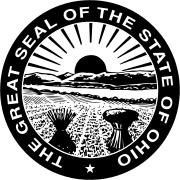
Joseph Vance was a Whig politician from the U.S. state of Ohio. He was the 13th governor of Ohio and the first Whig to hold the position.

Ethan Allen Brown was a Democratic-Republican politician. He served as the seventh governor of Ohio.

The Treaty of St. Mary's may refer to one of six treaties concluded in fall of 1818 between the United States and Natives of central Indiana regarding purchase of Native land. The treaties were
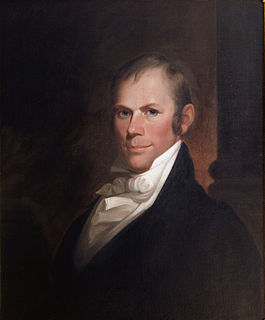
The 1818 and 1819 United States House of Representatives elections were held at various dates in different states between April 1818 and August 1819 during President James Monroe's first term. Also, newly admitted Alabama elected its first representatives in September 1819.
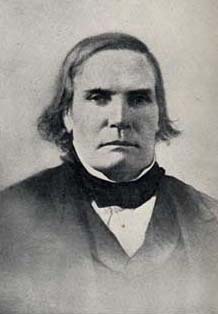
Jesse Burgess Thomas was an American lawyer, judge and politician who served as a delegate from the Indiana Territory to the tenth Congress and later served as president of the Constitutional Convention which led to Illinois being admitted to the Union. He became one of Illinois' first two Senators, and is best known as the author of the Missouri Compromise of 1820. After his retirement from the U.S. Senate in 1829 he lived the rest of his life in Ohio.
Franklin Corwin was a United States Representative from Illinois.

John William Allen was an American lawyer and politician from Ohio. He served two terms in the United States House of Representatives from 1837 to 1841 and also served as the fourth Mayor of Cleveland.
James Carr, son of U.S. Congressman Francis Carr, was a member of the United States House of Representatives from Maine, then a District of Massachusetts.

Harrison Gray Otis Blake was a U.S. Representative from Ohio.

Joseph Randolph Cockerill was a U.S. Representative from Ohio for one term from 1857 to 1859.
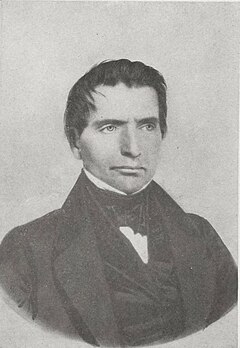
Rodolphus Dickinson was a U.S. Representative from Ohio, father of Edward F. Dickinson.
William Wilson was a U.S. Representative from Ohio.

Humphrey Howe Leavitt was a United States Representative from Ohio and a United States District Judge of the United States District Court for the District of Ohio and the United States District Court for the Southern District of Ohio.
The 1818 and 1819 United States Senate elections were elections for the United States Senate that had the Democratic-Republican Party gain two seats. The Federalists had only three seats being contested, of which they lost two and the third was left vacant due to a failure to elect.

Pennsylvania elected its members October 13, 1818.

Connecticut elected its members September 21, 1818. The delegation changed from seven Federalists to seven Democratic-Republicans due to the retirement of six incumbents and the party-change of the seventh.

Maryland elected its members October 5, 1818.

On January 1, 1818, a special election was held in North Carolina's 7th district to fill a vacancy left by the death of Representative-elect Alexander McMillan (F) before the 15th Congress had assembled.
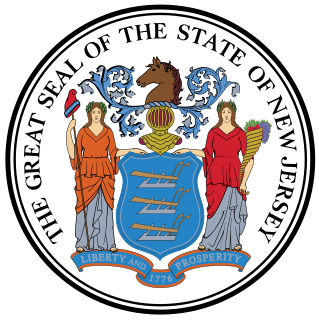
New Jersey elected its members October 13, 1818.

Illinois elected its new member sometime in 1818, after gaining statehood.
This page is based on this
Wikipedia article Text is available under the
CC BY-SA 4.0 license; additional terms may apply.
Images, videos and audio are available under their respective licenses.
